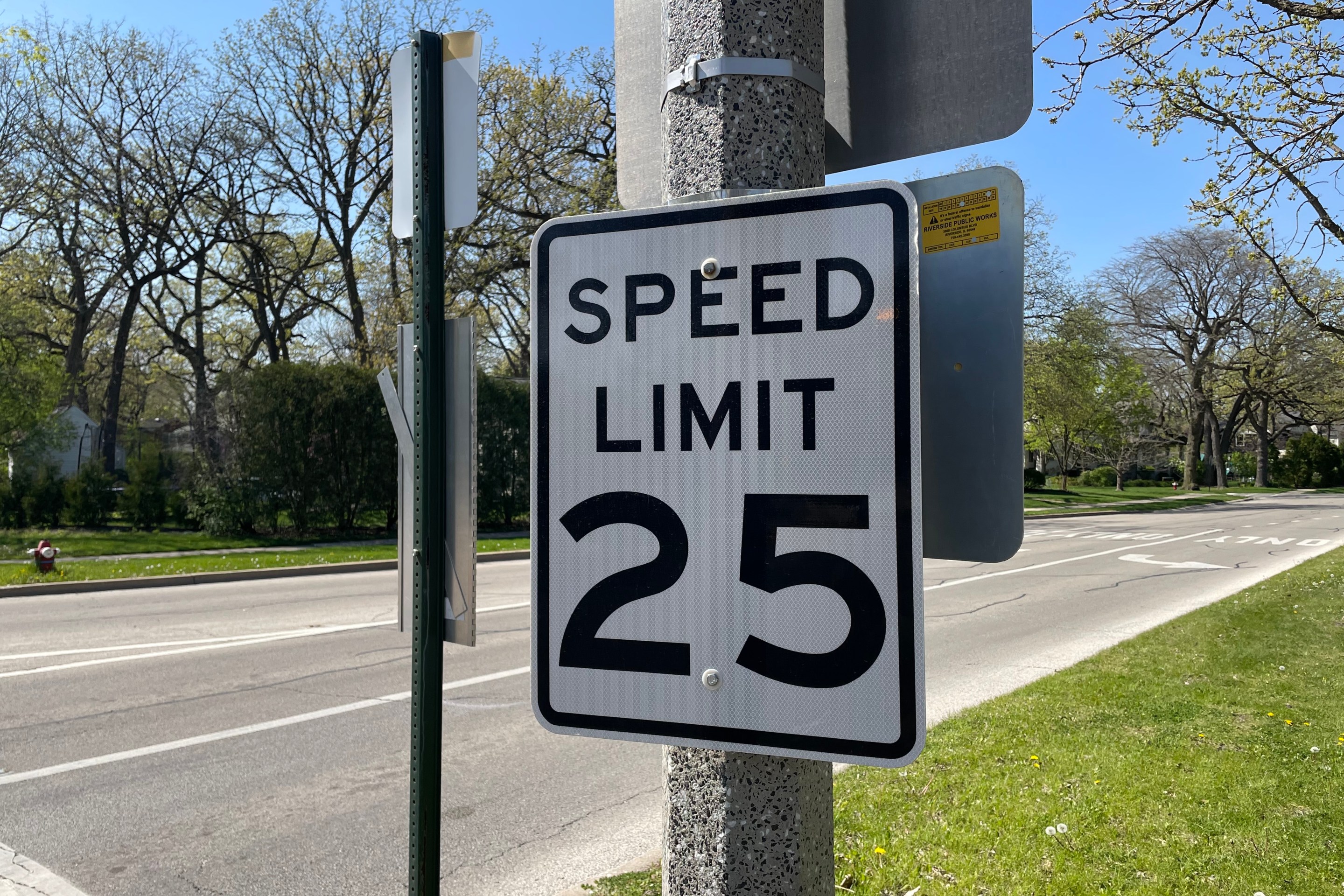No, Lori’s plan to make private ride-hail trips more expensive isn’t regressive
4:58 PM CST on November 5, 2019
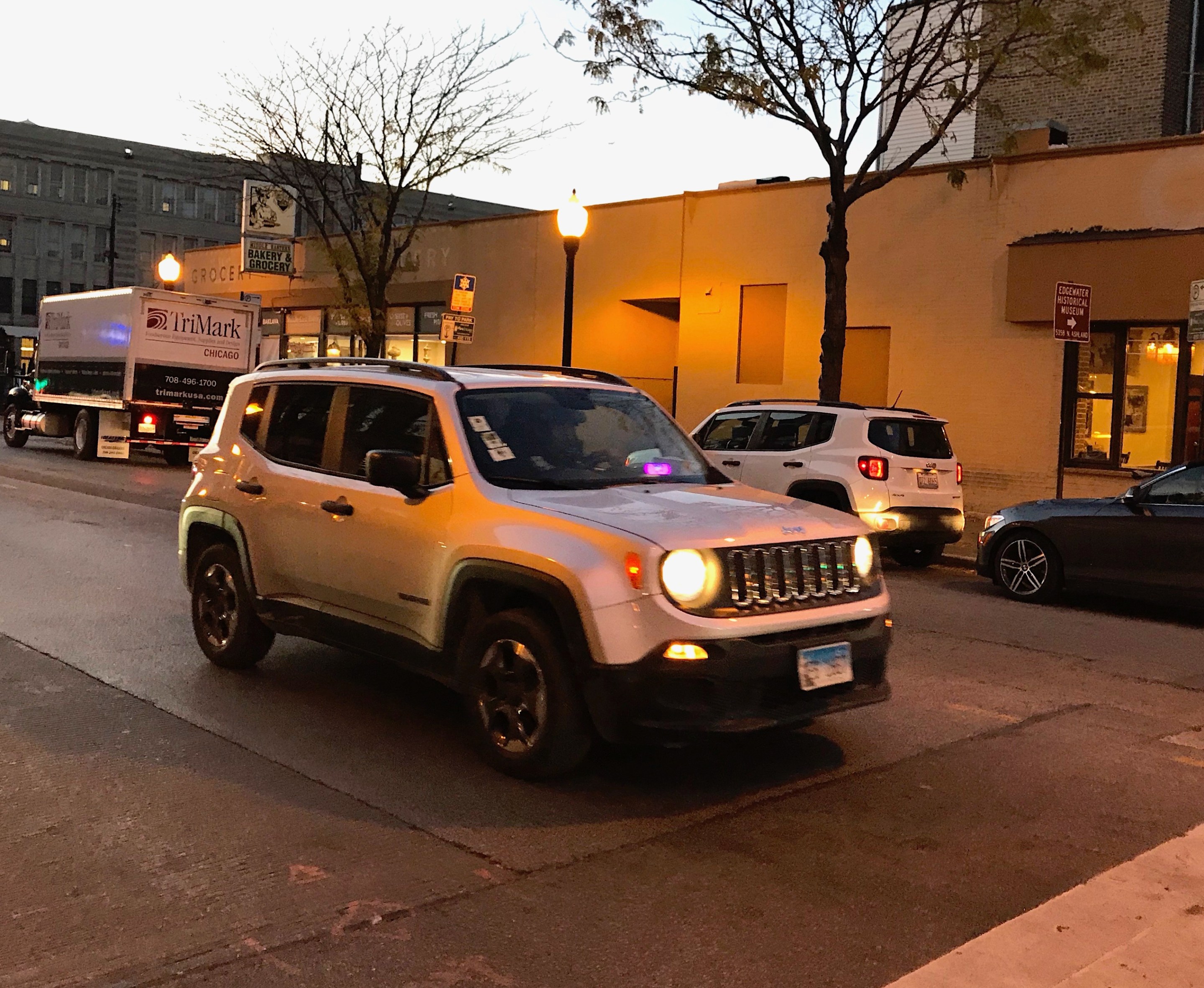
A Lyft vehicle. Photo: John Greenfield
Here's a good example of an actual regressive transportation policy: allowing Uber and Lyft to increasingly dominate Chicago's transportation system. These ride-hail services, which are artificially cheap due to the companies' willingness to burn through venture capital, offer some benefits for Chicagoans, but they also have a long list of negative impacts on cities.
While Uber and Lyft have provided a new option for residents in South and West side rapid transit deserts, their downsides disproportionately impact low-income Chicagoans. A recent analysis the city conducted of ride-hailing trips since 2015, found that most ride-hailing trips in our city are hailed by a single customer, as opposed to trips via shared-ride services like Uber Pool and Lyft Line. However, more than half of ride-hailing trip requests on the South and West trips are for shared trips.
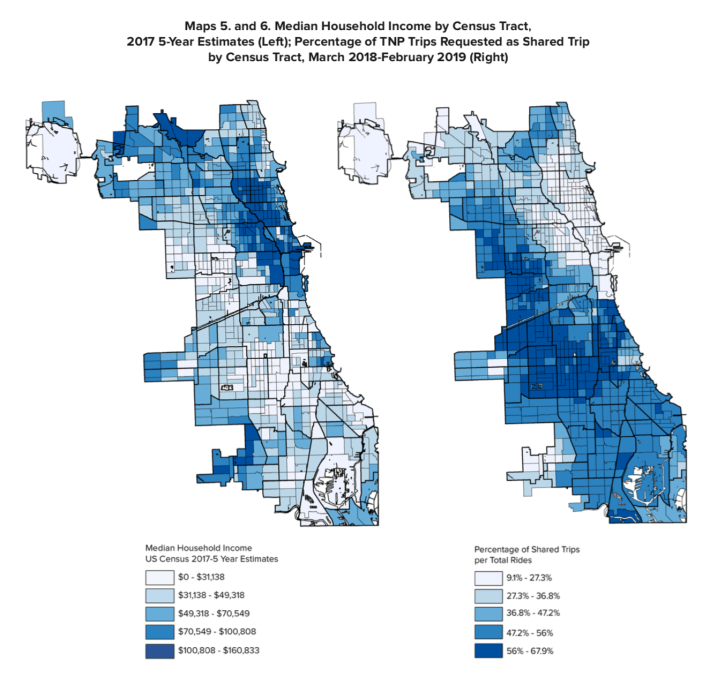
The many single-passenger trips taken by more affluent residents contribute to traffic jams, slowing down CTA buses, which lower-income Chicagoans are more likely to rely on. And when wealthier people opt for Uber and Lyft over transit, it reduces farebox revenue, which will ultimately force the CTA to cut bus and train service, creating a vicious cycle that will hurt transit-dependent people the most. Uber and Lyft are also increasing traffic fatalities, which disproportionately impact lower-income residents.
So it's a complete farce that Uber, Lyft, and their proxies are currently trying to paint Mayor Lori Lightfoot's proposal to hike fees on private and downtown ride-hail trips, while lowering the tax on shared trips, as regressive. Here’s the proposed fee structure:
- Decreasing the city fee on all citywide shared ride-hailing trips from $0.60 per trip to $0.53 per trip.
- Increasing the fee on all citywide private ride-hailing trips from $0.60 per trip to $1.13 per trip.
- Assessing a downtown zone surcharge, placing an additional $1.75 fee per trip for single rides and $0.60 per trip for shared rides.
Streetsblog readers will recall that when Uber was trying to kill the Divvy/Lyft deal for citywide expansion of the bike-share system, they engaged in an astroturfing campaign, spending many thousands of dollars to make the bogus argument that the contract extension would be inequitable. This included purchasing anti-Divvy coverage in a Black-focused arts and culture website and buying a full page ad in the Chicago Sun-Times with endorsements of Uber's position from 43 South Side faith leaders, including civil rights leader Jesse Jackson.
Uber is taking a very similar approach to fight Lightfoot's proposal, which includes some of the same community leaders involved in their campaign against the Divvy deal. For example, Tim Jones, a Hyde Park-based community advocate led a protest against the bike-share agreement at City Hall last March. Reverend William Hall of Saint James Church in Chatham signed the Sun-Times letter. Jones and Hall led an Uber-organized protest against the new ride-hail fees this morning at City Hall before a Department of Business Affairs and Consumer Protection hearing on the measure, according to a press release from Uber.
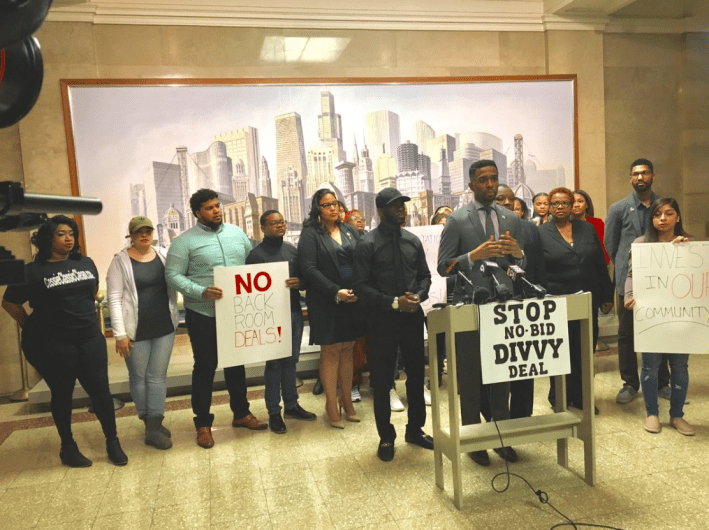
Jones denied that Uber was behind the Divvy protest last spring, and it's not clear that the people who showed up for these protests or signed the letter had a financial incentive to do so. But it's certainly interesting how dozens of community and faith leaders suddenly took a keen interest in bike-share and ride-hail equity issues.
The Uber press release states states that Lightfoot's proposal isn't "equitable" enough, and claims "her proposal [would] raise ride-sharing fees for South and West side residents by 80 percent." That's deceptive language. It's true that the tax on private trips would increase from $0.60 to $1.13. But, again, the city study found that more than half of trips hailed on the South and West sides are shared trips, so the measure would actually save most ride-hail users in these parts of town seven cents a trip.
That's not to say Lyft hasn't been fighting the ride-hail fee increase with dubious claims as well. In a statement to WTTW, which hosted a discussion of the issue on its "Chicago Tonight" program last night, a Lyft spokeperson said, “this proposal directly contradicts the mayor’s repeated promises to not increase fees that hurt low-income Chicagoans most.” No. Again, the fee structure will help more South and West side ride-hail users than it hurts. And by reducing ride-hail's harmful impact on the CTA it will help low-income Chicagoans who can't afford to hire a driver.
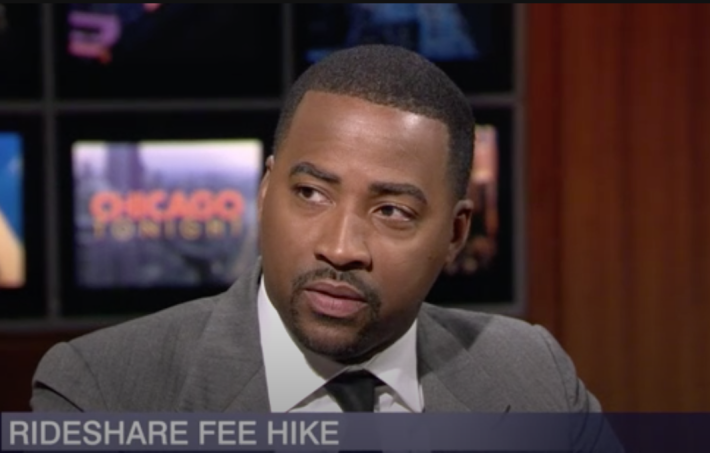
The "Chicago Tonight" spot featured Reverend Hall providing Uber's talking points as well as Active Transportation Alliance interim director Melody Geraci making sensible points about how the new fees would help mitigate ride-hail's negative impacts.
“We actually don’t pay the true cost of driving in general," Geraci said. "It’s heavily subsidized by the government, and many other countries, European countries in particular, have learned this lesson – that people need to understand the true cost that driving puts on our society.” She noted that these impacts include congestion, pollution, and crashes.
For his part Hall claimed that the new fees would be a burden on South Siders, ignoring the fact that most South Side ride-hail users would pay less under the new scheme. “You’re talking about people who use [ride-hailing services] to go to and from laundromats." Granted, a trip to a laundromat might be one example of an errand that might require a private ride. But if you can afford to have someone drive you to do your laundry, paying a total of $1.06 more for the round trip every week or two shouldn't be too much of a hardship.
That's not to say that Lightfoot's proposal is flawless. Steps should be taken to help ensure that the new fees don't unduly impact people with disabilities, women (I've heard from some female readers who say they feel safer in private ride-hail vehicles than shared ones), and ride-hail drivers. It might also make sense to waive or reduce the new fees on private trips in transit deserts.
But the argument that the mayor's plan is regressive is a red herring, put out by companies who are afraid that higher prices will make Chicagoans choose more sustainable modes over private ride-hail trips, which would be a very good thing for our city.
WTTW currently has a poll up on whether increasing ride-hail fees is a good idea for Chicago -- vote here.
In addition to editing Streetsblog Chicago, John writes about transportation and other topics for additional local publications. A Chicagoan since 1989, he enjoys exploring the city on foot, bike, bus, and 'L' train.
Read More:
Stay in touch
Sign up for our free newsletter
More from Streetsblog Chicago
Today’s Headlines for Tuesday, April 30
Equiticity and ATA: Passing a 25 mph speed limit should be combined with street redesigns that calm traffic
Equiticity, a mobility justice nonprofit, says the new speed limit shouldn't involve increased enforcement, which it says would disproportionately impact drivers of color
Johnson appoints one West Side pastor to CTA board, then nominates another West Side pastor for RTA board
Supporters argue that, despite his lack of transit expertise, Ira Acree’s social justice experience and political connections could be an asset for the RTA board.

